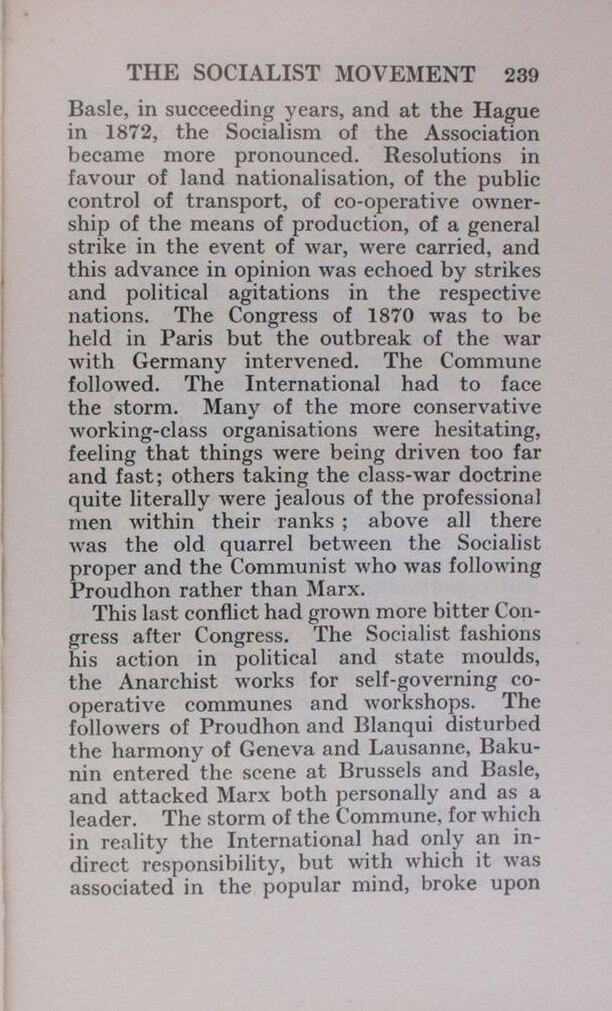Basle, in succeeding years, and at the Hague in 1872, the Socialism of the Association became more pronounced. Resolutions in favour of land nationalisation, of the public control of transport, of co-operative ownership of the means of production, of a general strike in the event of war, were carried, and this advance in opinion was echoed by strikes and political agitations in the respective nations. The Congress of 1870 was to be held in Paris but the outbreak of the war with Germany intervened. The Commune followed. The International had to face the storm. Many of the more conservative working-class organisations were hesitating, feeling that things were being driven too far and fast; others taking the class-war doctrine quite literally were jealous of the professional men within their ranks; above all there was the old quarrel between the Socialist proper and the Communist who was following Proudhon rather than Marx.
This last conflict had grown more bitter Congress after Congress. The Socialist fashions his action in political and state moulds, the Anarchist works for self-governing co-operative communes and workshops. The followers of Proudhon and Blanqui disturbed the harmony of Geneva and Lausanne, Bakunin entered the scene at Brussels and Basle, and attacked Marx both personally and as a leader. The storm of the Commune, for which in reality the International had only an indirect responsibility, but with which it was associated in the popular mind, broke upon
